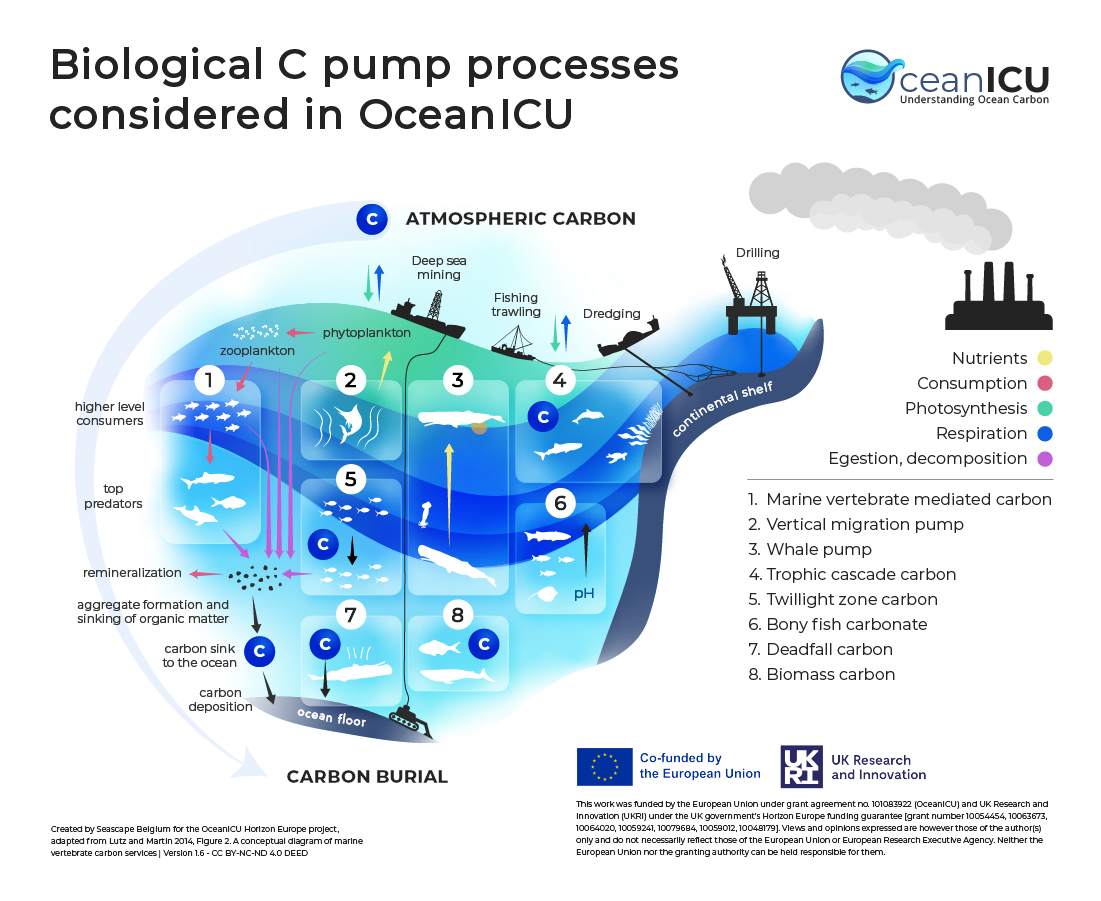Understanding Ocean Carbon
OceanICU is a Horizon Europe project aiming to produce new data, information and understanding on the role of the Ocean in the global carbon cycle.

Distinct contributions of suspended and sinking prokaryotes to mesopelagic carbon budget

Discussion Meeting and Poster Session Summary
Marine biodiversity loss, fishing, and climate change

Distinct contributions of suspended and sinking prokaryotes to mesopelagic carbon budget
OceanICU is a five-year project that seeks to gain a new understanding of the biological carbon pump and its processes to provide fundamental knowledge and tools to help policy makers, regulators and Ocean industry—fishing and mining, along with the wider blue economy—manage and understand the impact of their actions on Ocean carbon. This will ultimately lead to a better approach for addressing climate change in alignment with the EU Green Deal to reduce the net emissions of greenhouse gases to Zero by 2050.
Expected outcomes
Enhanced Ocean exploration around the role of biological groups in the sequestration of carbon by the Ocean.
Increased understanding and predictability and reduced uncertainty in the Ocean carbon cycle.
Improved understanding of new models and tools promoted by OceanICU.
Connecting OceanICU to end users
OceanICU will acquire knowledge of the global carbon cycle
to provide practical tools for policy makers, regulators and ocean users.
Biological Carbon Pump processes considered in OceanICU
OceanICU will improve our understanding of the Ocean C Cycle. The Ocean carbon cycle plays a crucial role in regulating the global climate, taking up approximately 25% of the CO₂ emitted into the atmosphere and separately storing massive quantities of carbon in the Ocean interior, much of it via a series of processes known as the biological carbon pump.”
Recent work suggests a much higher level of complexity in the biological carbon pump functioning than previously thought, including important roles for higher trophic level organisms and a broad range of fish associated processes. Looking to the future, humanity will become increasingly reliant on the Ocean for resources via fishing (protein), mining (trace metals) and energy extraction (wind). The European Green Deal demands that we develop ways to undertake these resource extraction activities in a climate neutral way. The consequences of these resource extraction activities (e.g. biomass removal via fishing or suspended sediment generation via industrial processes) disproportionately impact the higher Trophic levels, which are crucially important in the global carbon cycle but poorly understood. The project results will help Science fill these important knowledge gaps.


